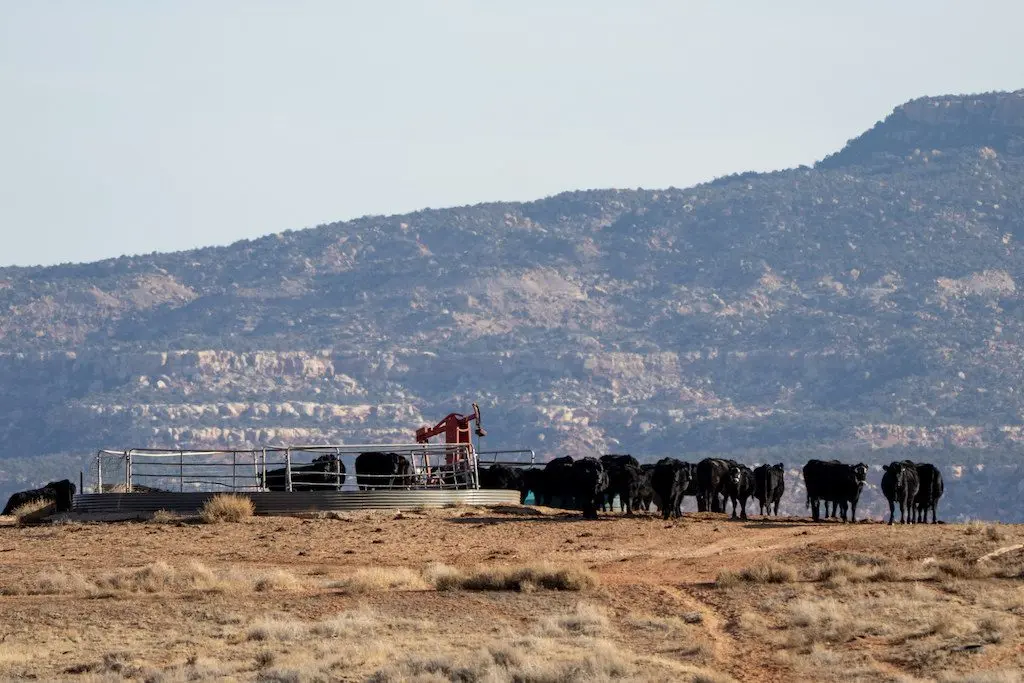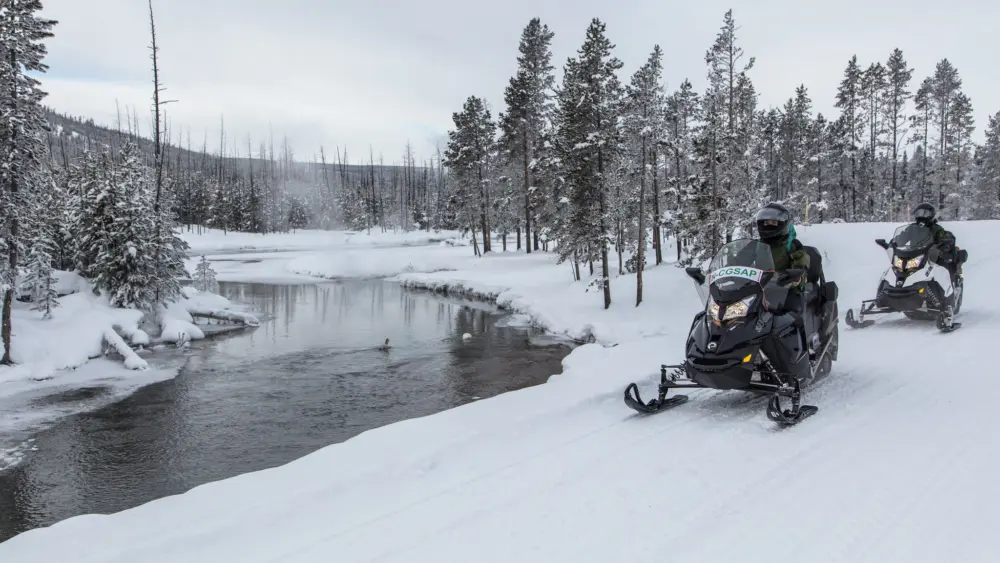WASHINGTON, D.C. – Public outcry was swift and forceful after a U.S. House committee last month hastily approved an amendment directing the federal government to sell off more than half a million acres of public land.
A few days later, lawmakers advanced the larger bill — a sweeping list of President Donald Trump’s priorities — but stripped the federal lands provision.
Yet leaders on both sides of the issue say the battle over selling off federal lands is likely just heating up.
Some conservatives in Western states have complained for decades that the feds control too much of the land within their borders. They see a long-awaited opportunity in a Trump administration that’s sympathetic to their cause. Public lands advocates are bracing for more attempts to turn land over to states, industry groups and developers.
“The threat level is red alert,” said Randi Spivak, public lands policy director with the Center for Biological Diversity, an environmental nonprofit. “Some of these states have been champing at the bit for decades to privatize. They’re certainly not going to let this opportunity pass without an aggressive effort.”
The ‘balance sheet’
In Western states, where most federally owned lands are located, some leaders view these lands as a treasured inheritance — places reserved for all Americans and critical for wildlife, tourism and outdoor recreation. Others feel that too much of the land in their states is controlled by officials in Washington, D.C., leaving it off-limits for development and curtailing its economic value.
Trump officials and allies have embraced the latter view. Interior Secretary Doug Burgum has repeatedly called federal lands America’s “balance sheet,” describing them as untapped assets worth trillions of dollars. He has launched an effort to identify federal lands suitable for housing development.
Other proposals have centered around using land sales to pay for tax breaks or to finance Trump’s proposed government-run fund that could invest in stocks or real estate.
For some state leaders, the newfound interest at the federal level to turn public lands into cash — along with Trump’s cuts to land management agency staff — aligns with a long-standing movement to reduce federal ownership.
“I look at it as an opportunity to say, ‘Hey, turn it over to the state,’” said Utah House Speaker Mike Schultz, a Republican.
Utah leaders have made the most forceful push to challenge federal land ownership. The state filed a legal challenge last year seeking to take control of more than 18 million acres of “unappropriated” lands — parcels held by the federal government without a specific designation such as a national park or monument. That effort hit a roadblock earlier this year when the U.S. Supreme Court declined to hear the case.
But with Trump in the White House, state leaders may pivot from challenging the feds in court to seeking their cooperation.
“We would love if the federal government just turned it over to us and said, ‘Here, manage these lands,’” Schultz said. “That’s an option as well. Those are discussions that are happening. Everything is on the table.”
Schultz declined to say which federal officials have been involved in discussions about transferring lands to the state.
Some lawmakers in Wyoming backed a state resolution this year — which ultimately failed — calling on Congress to hand over all federal lands except for Yellowstone National Park. Idaho lawmakers passed a measure calling on the feds to turn over a wildlife refuge to the state. And Nevada Gov. Joe Lombardo, a Republican, has called for a “systematic release” of federal land in the state.
But public lands also have many supporters in Western states, including some prominent Republican members of Congress, such as Reps. Mike Simpson of Idaho and Ryan Zinke of Montana. Zinke was Interior secretary for two years during the first Trump administration.
John Leshy, who served as solicitor for the U.S. Department of the Interior during the Clinton administration, said proposals to dispose of federal lands tend to be stymied by fierce public backlash.
“Federal lands are really popular,” he said. “It’s political poison [to sell off public land]. It’s a different West now. Public attitudes have changed.”
Leshy also noted that livestock ranchers especially benefit from discounted lease rates offered by the federal government.
Housing arguments
The most recent clash over the future of federal lands was the amendment sponsored by a pair of congressional Republicans last month. The measure would have directed the Bureau of Land Management to sell more than 500,000 acres of land in Nevada and Utah. Local governments would have been able to buy the land at market value, with no restrictions on how they used it.
Backers said the sale would bring in revenue to cover Trump’s proposed tax cuts, while allowing local governments to build much-needed housing on the parcels. Utah GOP Sen. Mike Lee said he will try to revive the measure as the Senate considers the bill this month, E&E News reported.
In Nevada, where 85% of land is owned by the federal government, some leaders say their communities are hemmed in by a checkerboard of public lands that constrain development. The city of Fernley, which is growing rapidly, would have acquired 12,000 acres under the proposal.
“We need housing,” said Benjamin Marchant, Fernley’s city manager. “The city can’t plan roads and water lines, sewer lines and gas lines, when you have federal land between two parcels that want to develop. This will bring a practical and helpful consolidation of all these lands into one developable area.”
Nevada leaders have long worked on proposals to transfer some federal lands to local governments and allow for increased growth. But some lawmakers say the latest push bypassed that collaborative process — and failed to include safeguards that the money raised from the sale of the lands would be reinvested into conserving public lands elsewhere.
“It was a complete betrayal of everything we’ve worked on in this state,” said Assemblymember Howard Watts, a Democrat. “This amendment is trying to sell off half a million acres of Nevada’s public lands in order to pay for tax cuts for billionaires. This is not going to address our housing problem. These lands are positioned to be sold off for other forms of development and extraction.”
Similar debates are happening in Utah. In southwestern Utah’s Washington County, local officials say the disposal of federally controlled land could help alleviate the region’s housing crisis and increasingly strained infrastructure.
The county is experiencing rapid population growth — in 2022, St. George, the county seat, was the fastest-growing metro area in America. County and city leaders hoped the amendment would have helped them manage the growth. The measure would have disposed of roughly 11,500 acres of federally controlled land in Utah, selling it at market value to local governments.
The proposal received pushback from all sides, including environmentalists, hunting and fishing groups, House Democrats and even conservatives.
“[The amendment] is consistent with how U.S. Department of the Interior Secretary Burgum thinks about federal public lands, as simply assets on a ledger to be sold off,” said Steve Bloch, legal director for the Southern Utah Wilderness Alliance, an environmental nonprofit. ” … It’s just antithetical to how Westerners think about the federal public lands that make up so much of our landscape.”
Washington County Commissioner Adam Snow, a Republican, said a lot of the opposition was misguided. The county would have acquired almost half of the land earmarked for disposal, and Snow said much of that would have been used to widen existing roads and construct new ones that are bordered by Bureau of Land Management property.
“These were not pristine wilderness lands. Some of the environmental groups tried to make it sound like we’re selling off Zion National Park, and that’s not even close to true,” Snow said. “If we can just not have to deal with the federal government every time we want to chip seal a road or improve an intersection, that would be really nice. Because we have to ask ‘Mother, may I?’ for everything out here.”
Local leaders say federal parcels could help ease housing pressures as well. Snow said transferring parcels to the city or county is one of the only ways to stop the area from becoming wildly expensive.
“We’re running out of room real quick,” he said. “ … There is still private land to develop, but they’re going to charge an absolute premium.”
The amendment that was stripped from the House bill was widely criticized for not having any restrictions on what could be done with the land.
“There was no language whatsoever that would require Washington County or St. George to do anything with these lands. They could lease them for development. They could sell them outright,” said Bloch.
The costs of management
In Utah, lawmakers have created a state Department of Land Management — essentially a placeholder agency that would be funded and staffed only if their effort to assume control of large swaths of federal land succeeds. Schultz, the House speaker, said the state is committed to keeping the lands in the public domain, reopening roads and campgrounds closed by the feds.
“We’d just take over the job from the federal government,” he said. “It is something that the state absolutely would do, and we’d do it more efficiently, more effectively and we’d have better outcomes.”
Schultz said the state could bring in the revenues needed to manage the land by raising lease prices for oil and gas operations on parcels currently managed for drilling.
But some public lands advocates say that’s not realistic. The federal Bureau of Land Management employed more than 950 people in the state as of 2024, and feds also assume the expensive task of wildfire management on their lands.
“If you look at the history of what Utah has done with their lands, they’ve sold more than half of them,” said Devin O’Dea, Western policy and conservation manager with Backcountry Hunters & Anglers. “We’re certainly of the perspective that states could not handle the economic costs of managing these lands. Their hand would be forced; they would have to sell these lands in order to deal with those costs.”
John Robison, Idaho Conservation League public lands and wildlife director, said Simpson — the Idaho congressman — and the state’s two senators have all won praise from constituents for their work on public lands compromises.
“Savvy Idaho politicians know that public lands are popular,” he said.
But other state leaders insist their governments are better equipped to manage the lands. Idaho Attorney General Raúl Labrador, a Republican, was among the officials who signed an amicus brief in support of Utah’s lawsuit against the feds.
“We live here, we work here, and we are far better stewards of our forests and resources than federal bureaucrats in Washington,” Labrador said in a statement. “ … If Idaho owned this land, we could lease it for timber, grazing, and mining — just like the federal government does — but reinvest that revenue right here in Idaho.”
Stateline reporter Alex Brown can be reached at abrown@stateline.org , Idaho Capital Sun reporter Clark Corbin can be reached at ccorbin@idahocapitalsun.com, and Utah News Dispatch reporter Kyle Dunphey can be reached at kdunphey@utahnewsdispatch.com.
This article was first published by Stateline, part of States Newsroom, a nonprofit news network supported by grants and a coalition of donors as a 501c(3) public charity. Stateline maintains editorial independence. Contact Editor Scott S. Greenberger for questions: info@stateline.org.
Washington State Standard is part of States Newsroom, a nonprofit news network supported by grants and a coalition of donors as a 501c(3) public charity. Washington State Standard maintains editorial independence. Contact Editor Bill Lucia for questions: info@washingtonstatestandard.com.





